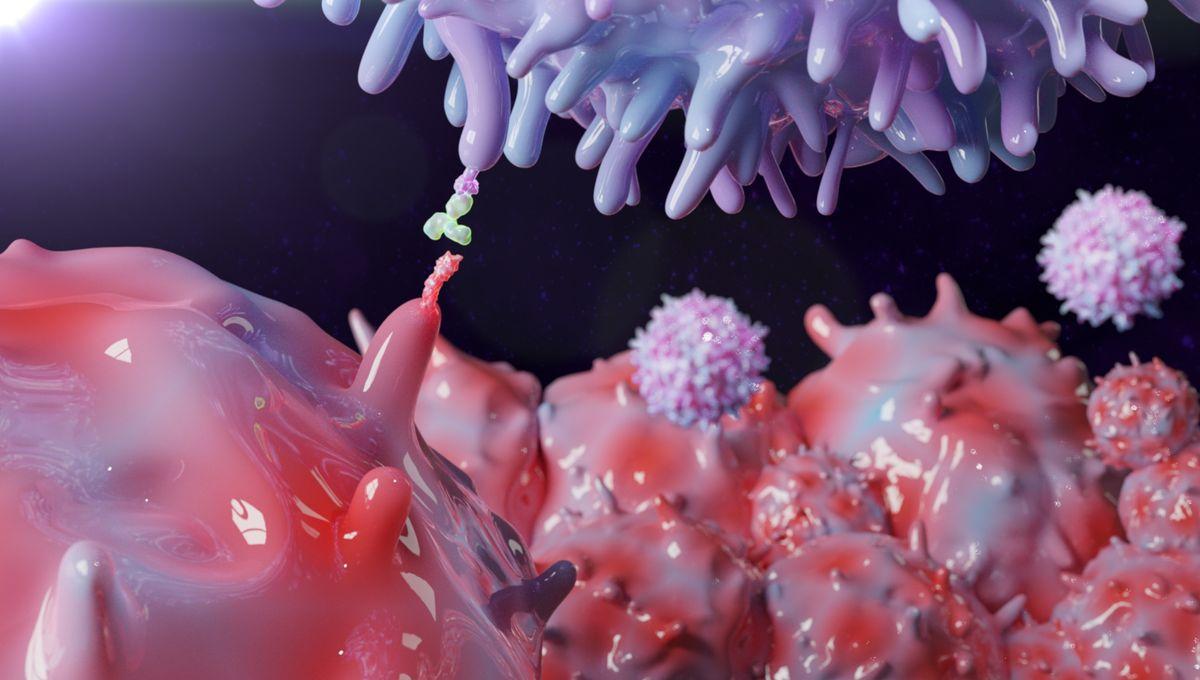COVID-19 mRNA Vaccines Boosted Survival Almost 5-Fold In Some Cancer Patients

COVID-19 mRNA Vaccines Boosted Survival Almost 5-Fold In Some Cancer Patients
Cancer patients receiving a certain type of immunotherapy were twice as likely to be alive after three years if they received a COVID-19 mRNA vaccine within 100 days of beginning cancer treatment, new research presented at a recent conference has found.
The rest of this article is behind a paywall. Please sign in or subscribe to access the full content. It was when co-lead researcher Dr Adam Grippin was conducting graduate research at the University of Florida that the idea of using mRNA vaccines to boost the cancer-fighting abilities of the immune system was first mooted. While developing a personalized mRNA vaccine for brain tumors under the supervision of Dr Elias Sayour, Grippin found that the mRNA vaccine candidates could prime the immune system to eliminate tumors even when the vaccines weren’t targeted specifically against the tumor cells. The massive rollout of mRNA vaccines against COVID-19 provided the perfect opportunity to investigate this potential link in the real world. Now a senior resident in Radiation Oncology at The University of Texas MD Anderson Cancer Center, Grippin partnered with Professor Steven Lin and led a team through a retrospective analysis of the outcomes of MD Anderson patients after receiving their COVID shots. Looking at more than 1,000 patients treated between August 2019 and August 2023, the team found that of those receiving immune checkpoint therapy, they were twice as likely to be alive three years after starting cancer treatment if they had received a COVID vaccine within 100 days of their first treatment. “This study demonstrates that commercially available mRNA COVID vaccines can train patients’ immune systems to eliminate cancer,” said Grippin in a statement. “When combined with immune checkpoint inhibitors, these vaccines produce powerful antitumor immune responses that are associated with massive improvements in survival for patients with cancer.” Immune checkpoint inhibitors, hailed as “one of the most substantial advances in cancer therapy” of recent years, work differently than traditional chemotherapy. Instead of directly targeting and killing cancerous cells, they prime the immune system to better seek out and destroy tumors. They’re now used in the treatment of lots of different cancers, and the data used in this new study also included a range of cancer types. In one cohort, 180 patients with non-small cell lung cancer had a median survival time of 37.33 months, compared to 20.6 months for the 704 patients who did not get vaccinated. In another, 167 unvaccinated patients with metastatic melanoma had a median survival of 26.67 months; but in the 43 vaccinated patients, median survival was “unmet”, meaning the patients were living much longer. While immune checkpoint inhibitors have been transformative for many cancer patients, they don’t work for everyone. This study suggests that mRNA vaccination could help tip the scales in some of these cases. The survival benefits were most marked in patients with “immunologically cold” tumors, which typically do not respond well to immunotherapy. In these patients, getting a COVID vaccine was associated with an almost five-fold improvement in three-year overall survival. "The really exciting part of our work is that it points to the possibility that widely available, low-cost vaccines have the potential to dramatically improve the effectiveness of certain immune therapies,” said Grippin. “We are hopeful that mRNA vaccines could not only improve outcomes for patients being treated with immunotherapies but also bring the benefits of these therapies to patients with treatment-resistant disease.” As to how this all works, labs at MD Anderson and the University of Florida investigated using preclinical models, and found that the mRNA vaccines effectively raise the alarm in the immune system, activating it and getting it to peak cancer-finding effectiveness. Cancer cells respond to this threat by making lots of the protein PD-L1 – but that’s where the immune checkpoint inhibitors come in. Some of the most widely used of these drugs are specifically targeted to block PD-L1. Further experiments will help to elucidate this mechanism even further, and the team is also designing a clinical trial. The COVID-19 vaccines have saved millions of lives and helped humanity wrestle the pandemic under control; if future trials continue to produce positive results, these vaccines could also become part of standard cancer treatment for many. This is Nobel Prize-winning technology we’re talking about, after all. The study was presented at the European Society for Medical Oncology (ESMO) Congress 2025, and has not yet been published in a peer-reviewed journal.


